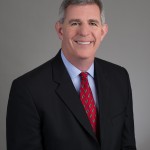As a part of our talent acquisition engagements, we ask our clients how they define “top talent” and how they would assess those traits in the interview process. Reflecting on the insightful comments we hear every day, we thought there would be great value in a new blog in which senior executives/thought leaders share their “Take on Talent.”
This is the sixth in a series of blogs/interviews with senior executives who are thought leaders in the areas of Talent Acquisition, Career Development and Leadership who will share their perspectives on this ever present question.

Peter Bendor-Samuel founded Everest Group in 1991 with the vision to assist the then nascent out sourcing and global services industry to evolve more powerful and effective mechanisms to create and capture value. Everest Group is now a leader in the global services industry, and is constantly at the intersection to show other firms how to take advantage of disruptive technologies, innovative service vehicles, and game-changing talent models.
Peter is the author of the industry best-selling book, “Turning Lead Into Gold: the Demystification of Outsourcing.” He is a regularly featured thought leader in international business media including the Wall Street Journal, New York Times, and Financial Times, and is a frequent keynote speaker at various industry events.
Please share with us the top five characteristics (in priority order, first to fifth) of the most talented people you have encountered during your career, and your definition of each.
1. Integrity. Talented people have a center of integrity. They are honest, hardworking, clear on their values, and they live and model those values consistently. The importance of this can’t be understated. People admire and trust them, and they are worthy of support and backing. This allows them to perform and operate at an extremely high level. Integrity underpins both who they are and how they perform.
2. Accountable. The most talented people take responsibility for driving value and achieving their objectives. And they do this regardless of the impediments in front of them. Peter Drucker said executives define themselves by the contribution they make to their business. Whatever the issue, and whether it’s under their control or not, talented people take on the responsibility and ensure that the objective or value is created. People who consistently own problems are rare and highly talented.
3. Self-aware. Self-aware people are aware of their strengths and weaknesses. People who are less talented try to get by through bluster and intimidation. They are able to focus on the problem and get the problem or issue resolved and not make it personal about themselves.
4. Problem-solver. Talented people are good problem solvers. They are able to synthesize a problem, take complex situations with ambiguous data, and structure the problem to get to the core issue. They are able to simplify the complex and ambiguous without losing meaning. And in simplifying it, they enable others to both understand and take action against that.
5. Leadership. Talented people are effective leaders. They are able to inspire others to greater performance. They are able to operate and lead through influence as well as authority.
How do you communicate these characteristics to your HR and senior management team?
At Everest Group, we are committed as a firm to a high-performance culture. In implementing this culture, we first held a long series of meetings where the leadership team spent a great deal of time discussing, analyzing and understanding what this means and agreeing that we were committed to doing what it takes to achieve it. That resulted in coming up with tight evaluation criteria for recruits, a robust understanding of how to evaluate and coach our employees to meet these standards and a commitment to hold ourselves to these standards.
How do you handle challenges to the existing culture by talent you have brought in?
We hire talented people every one of which brings a new and fresh perspective. We patiently explain our firm’s values to new hires and help them integrate their talents and perspectives into the firm’s culture. What is helpful in this process is our commitment to open and honest communication. We have a motto that it’s not about being right; it’s about getting it right. This leads to a culture of challenging ideas rather than challenging people, where the goal is to improve the quality of our thinking and the quality of the firm, rather than being individually right. It is essential that everyone in our firm and especially our leaders model the behaviors and values we are asking of the new talent.
Finally we have a “no jerks” policy. It doesn’t matter how talented someone is or how high that person’s performance is. If someone acts like a jerk and doesn’t act in a collaborative way consistent with our values, we ask them to leave.




